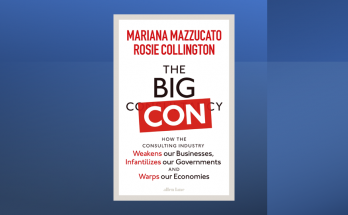Foundational Economy – The infrastructure of everyday life by The Foundational Economy Collective, Manchester University Press ISBN: 978-1-5261-3400-4
A collective at Manchester University has, through intensive research, concluded that a social licence may be the way forward in dealing with questionable financial behaviour by privatised utilities in the UK.
Review by David Hall
This book is written by a collective of authors mainly based at Manchester University, including Julie Froud, Karel Williams and others, who have published a series of incisive critiques of privatisation in many sectors over the years, always based on intensive empirical research and precise analysis of financial and other data. The book grows out of this history and derives great strength and reliability from that.
The first chapter in the book is about the Foundational Economy concept in the title. The authors define it by three criteria that each rests on its value to people: “goods and services necessary to daily life; consumed daily by all citizens; and distributed according to population through branches and networks”. Within this, they distinguish the material and providential foundational economies. The material category includes not only the water-energy-telecoms utilities but also retail banking and food, characterised by their necessary continuity and the revenue streams that can be generated from them. Providential includes health and education and income transfers, by which the state provides “good fortune”. Both of these are cast as central to the rights of citizens in the modern state. The chapter includes a historical review of the growth of the foundational economy.
The chapter Wrecking the Foundational reviews the growth of various forms of privatisation and the macro-economic and political forces behind it, including a detailed analysis of the financial and accounting techniques used, drawing on examples from social care, gas, waste management, and railways. This historical and technically rich account of destruction concludes that financialised companies have become “disconnected” by short-termism, denial of responsibility to their employees, and above all by floating free from society and its norms and values. The authors conclude that the infrastructure and public services of the foundational economy rest fundamentally on “a moral enterprise….about re-embedding the economy in social constraints and ambition”, and Pope Francis is quoted in support.
This idea then forms the basis of the next chapter, The constitution of the foundational, which is effectively about how to undo the damage and restore the foundational economy to full health. This starts with a philosophical framework based on Amartya Sen’s ideas on human capabilities and those of the 19th century English liberal political philosopher T.H. Green on rights of citizens. It reminds us that Henry Ford did have a social vision, of workers on high wages becoming mass consumers, and includes a welcome discussion of the problem of national boundaries in relation to citizen rights.
The book then returns to the problem of “disconnected” maverick corporations and proposes that the solution requires those corporations to accept moral obligations, and so “the answer is to make their obligations explicit and morally defensible, not by nationalisation, but by constitutional reform which brings them into the public domain and subjects them to a new form of regulation”. The way to do this is to subject utilities and contractors, and even sectors, to “social licences” which would require them to observe community standards on service delivery, employment policies, financial practices – including limitation on the use of debt, though not on payment of taxes. The chapter references as a model the social license agreements developed between mining companies and communities in developing countries.
This is the weakest section in the book.
It fails to address why abusive extraction of profits by privatised utilities in the UK continues unabated, when for nearly 30 years they have operated under the terms of licenses, overseen by the well-resourced regulators Ofwat and Ofgem. Against this background, advocacy of “better regulation” or “social licenses” needs to show how these problems would be avoided, and how any social licenses would be policed, but the book does not do this.
If the institutional mechanisms required resemble Ofwat and Ofgem, there needs to be at least a discussion of how they would operate differently. If the answer involves more democratic controls, then it is not clear why public ownership is ruled out – they would presumably be public bodies, and Ofwat and Ofgem already between them employ about 1,000 people, which is the same order of size as the departments of energy and water did before privatisation. This does not take anything away from the value of the first two chapters.
Finally: the publishers should have provided an index for the printed book, which makes the e-book version a much better option.




